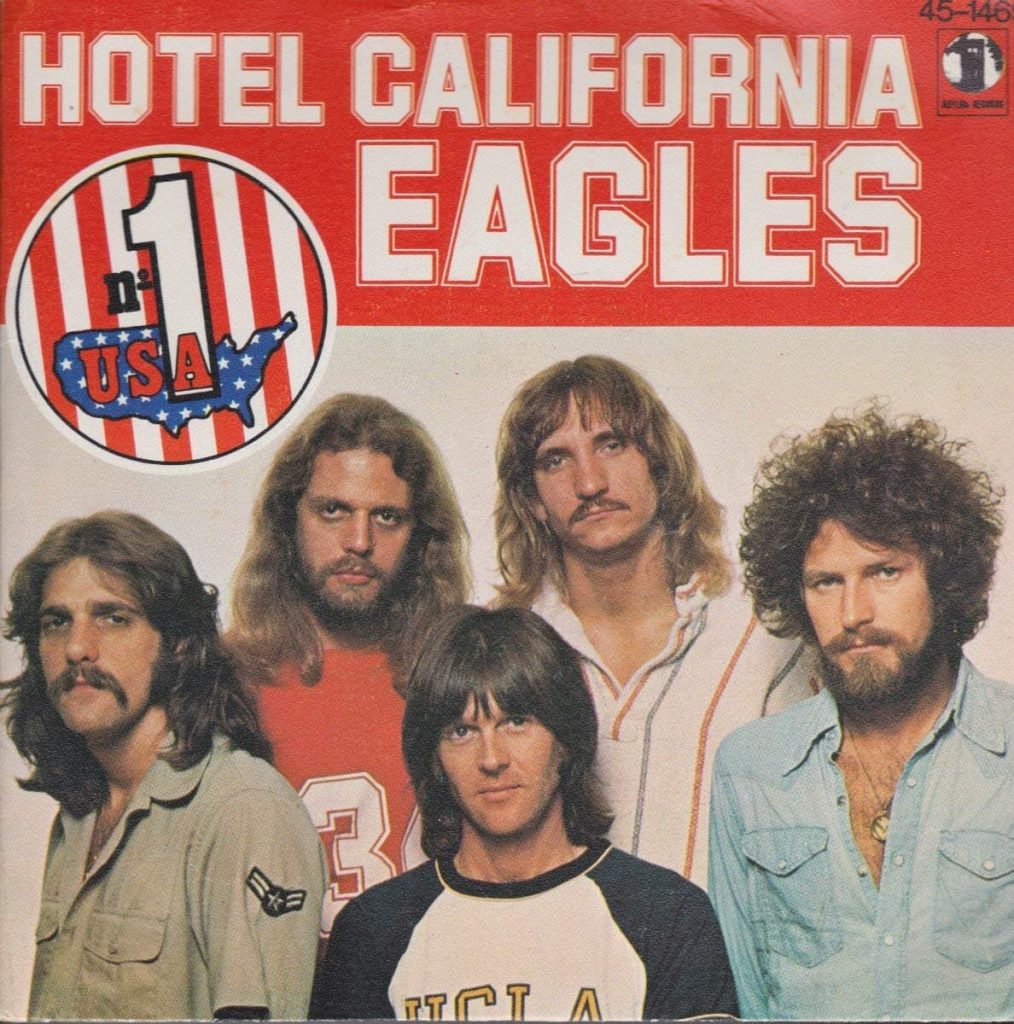
Eagles’ “Pretty Maids All in a Row”: A Gentle Meditation on Life and Reflection
Released on the Eagles’ iconic 1976 album, Hotel California, “Pretty Maids All in a Row” is a unique entry in the band’s catalog. Written by Joe Walsh and Joe Vitale, with Walsh on lead vocals, the song presents a softer, more introspective side of the Eagles, contrasting with the hard-hitting rock anthems and complex narratives that define much of the Hotel California album. “Pretty Maids All in a Row” is often considered one of Walsh’s most reflective and contemplative pieces, exploring themes of nostalgia, loss, and the passage of time.
The song opens with a gentle piano melody that immediately sets a reflective mood. Walsh’s understated, almost wistful delivery gives the song a conversational feel, as if he’s sharing his thoughts and memories directly with the listener. His vocals are vulnerable and sincere, creating an emotional depth that’s both haunting and comforting. The lyrics invite us to consider life’s fleeting moments and to question how we spend our time. Lines like, “I don’t know why fortune smiles on some and lets the rest go free” reflect a deep sense of wonder about life’s unpredictable nature.
Musically, “Pretty Maids All in a Row” is simple yet powerful. It features a blend of piano, guitar, and pedal steel, creating a warm, lush soundscape that supports Walsh’s reflective lyrics. Unlike the intricate harmonies or guitar solos often associated with the Eagles, this track’s arrangement is sparse and restrained, giving it a distinct feel within the album. The simplicity of the instrumentation allows the listener to focus on the lyrics, which resonate with universal themes of memory, aging, and the bittersweet nature of change.
Joe Walsh, best known for his more energetic and guitar-driven contributions, demonstrates his versatility as a songwriter and musician here. He moves beyond his usual role as the Eagles’ rock and roll wild card, showing a depth of sensitivity and introspection that highlights his often-overlooked emotional range. Don Henley and Glenn Frey contribute subtle backing vocals that add a layer of harmony, but they leave the spotlight to Walsh, allowing his unique style to shine.
Lyrically, “Pretty Maids All in a Row” is filled with nostalgia. The title itself evokes images of innocence, beauty, and youth—things that are cherished but inevitably fade over time. The lyrics reflect on the passage of time and the moments that define our lives, moments that may seem small at the time but take on greater significance as we look back. There’s a sense of melancholy in Walsh’s words, as he reflects on relationships, memories, and the inevitable changes that come with age. The repeated phrase “I keep hopin’ it won’t be long” suggests a desire to reconnect with those we’ve lost touch with, a wish to hold onto the past even as it slips away.
“Pretty Maids All in a Row” stands out on Hotel California for its introspective tone and simplicity, offering a moment of quiet contemplation amidst the album’s larger themes of excess, disillusionment, and the darker side of the American dream. While songs like “Hotel California” and “Life in the Fast Lane” explore themes of hedonism and the dangers of fame, “Pretty Maids All in a Row” feels almost like a personal diary entry, a reminder of the quieter, more personal reflections that often go unnoticed in the rush of life.
The track has been a fan favorite, often cited for its emotional resonance and unique place within the Eagles’ body of work. Its message of reflection and appreciation for life’s fleeting moments continues to resonate with listeners, particularly as it serves as a counterpoint to the more complex and grandiose tracks that surround it on Hotel California. The song’s sentiment of longing and introspection offers listeners a chance to pause and reflect, making it a piece that only grows in meaning as time goes on.
In essence, “Pretty Maids All in a Row” is a heartfelt meditation on the passage of time and the beauty of life’s fleeting moments. It’s a gentle reminder from Joe Walsh to take stock of our lives, to remember the things that matter, and to hold close the memories and connections that shape who we are. The song remains a beautiful testament to Walsh’s songwriting and a cherished piece of the Eagles’ legacy, a moment of quiet introspection that adds depth and warmth to one of rock’s most iconic albums.